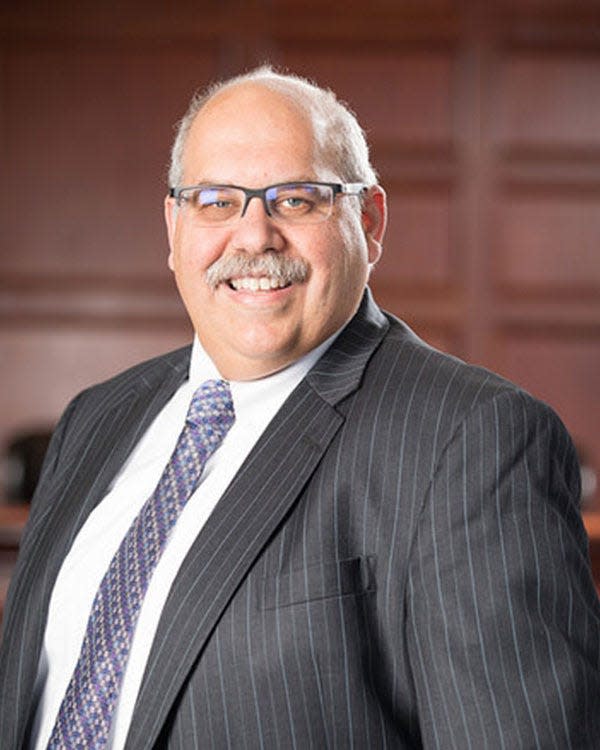OCU law professor: Why disqualifying Trump from ballot would be great political mistake
- Oops!Something went wrong.Please try again later.
- Oops!Something went wrong.Please try again later.
We’ll never know for sure, but it is said that King Henry II, furious with Thomas Becket, the Archbishop of Canterbury, and surrounded by his anxious retinue, exclaimed “Will no one rid me of this turbulent priest?” What we know for certain is that several of the monarch’s knights took his lament as an order to silence Becket, leading to the priest’s murder. The ensuing chaos has convinced most, then and since, that Henry should have learned to tolerate Becket’s resistance.
Donald Trump is no Thomas Becket, but he does produce the kind of frustration that makes some people wish that those in power would force Trump out of politics and save the nation from his alleged malign presence. Those who abhor Trump cannot help but see the majority of the Colorado Supreme Court as their knights in shining armor. The court held that Section 3 of the 14th Amendment, which forbids any former officer of the United States who engaged in an insurrection or rebellion from returning to office, disqualifies Trump from the Colorado ballot. If enough state courts, particularly electorally crucial ones like Colorado, agree, it will be impossible for Trump to regain the presidency.
More: Former Oklahoma AG: Colorado Supreme Court is right on decision to bar Trump from ballot
Like Henry, though, whether you like or hate Trump, we will end up regretting letting the state judiciaries make our most fundamental political decisions. It is true that millions of Americans agree with the Colorado court that Trump’s encouragement of and involvement with the Jan. 6 perpetrators made him responsible for their subsequent violent actions, which they equate with, in the words of the Constitution, having “engaged in insurrection or rebellion.” The problem with this conclusion is that, while there are some prominent law professors who go along, the court’s interpretation of the Constitution is highly questionable.
I agree that the court’s interpretation is a plausible, literal reading of the words, but it is an aggressively broad one. While I can understand why some would think sound, political hygiene justifies broad disqualification of political miscreants who engage in any action encouraging insurrectionary or rebellious acts, it is far wiser, both legally and politically, to follow the example of Chief Justice John Marshall, our nation’s greatest jurist, who in dealing with the treason prosecution of former Vice President Aaron Burr, held that we should define the crime of treason narrowly, not broadly. Marshall held, for example, that participating in formulating a plan to levy war doesn’t satisfy the constitutional requirement that a traitor actually levy war against the United States — you actually have to make war by committing overt acts constituting force.
More: Guest: Do we really need to determine if the president is an elected official or an officer?
I think Marshall would read the insurrection and rebellion language similarly — to be disqualified you actually have to engage in insurrectionary or rebellious acts, amounting to violence. No matter how morally responsible Trump may be for the events of Jan. 6, unlike the leaders of the Confederacy, he didn’t directly engage in a violent insurrection or a rebellion.
Disqualifying Trump from the ballot would be an even greater political mistake. The reality is that, no matter how you measure it, nearly half the nation’s voters support Trump and believe that Trump’s inveterate opponents intend to deprive them of their right to choose their rulers. They will never accept the legitimacy of any election from which Trump is excluded.
No matter our daydreams, there is no shortcut to political health. If Donald Trump truly poses an existential threat to our political and social institutions, we have no choice but to make the arguments to our fellow citizens. In a government founded on the principle of consent, only the majority can save us from ourselves.

Andrew C. Spiropoulos is the Robert S. Kerr Sr. Professor of Constitutional Law and director of the Center for the Study of State Constitutional Law and Government at Oklahoma City University School of Law.
This article originally appeared on Oklahoman: Disqualifying Trump from ballot would be a great political mistake
